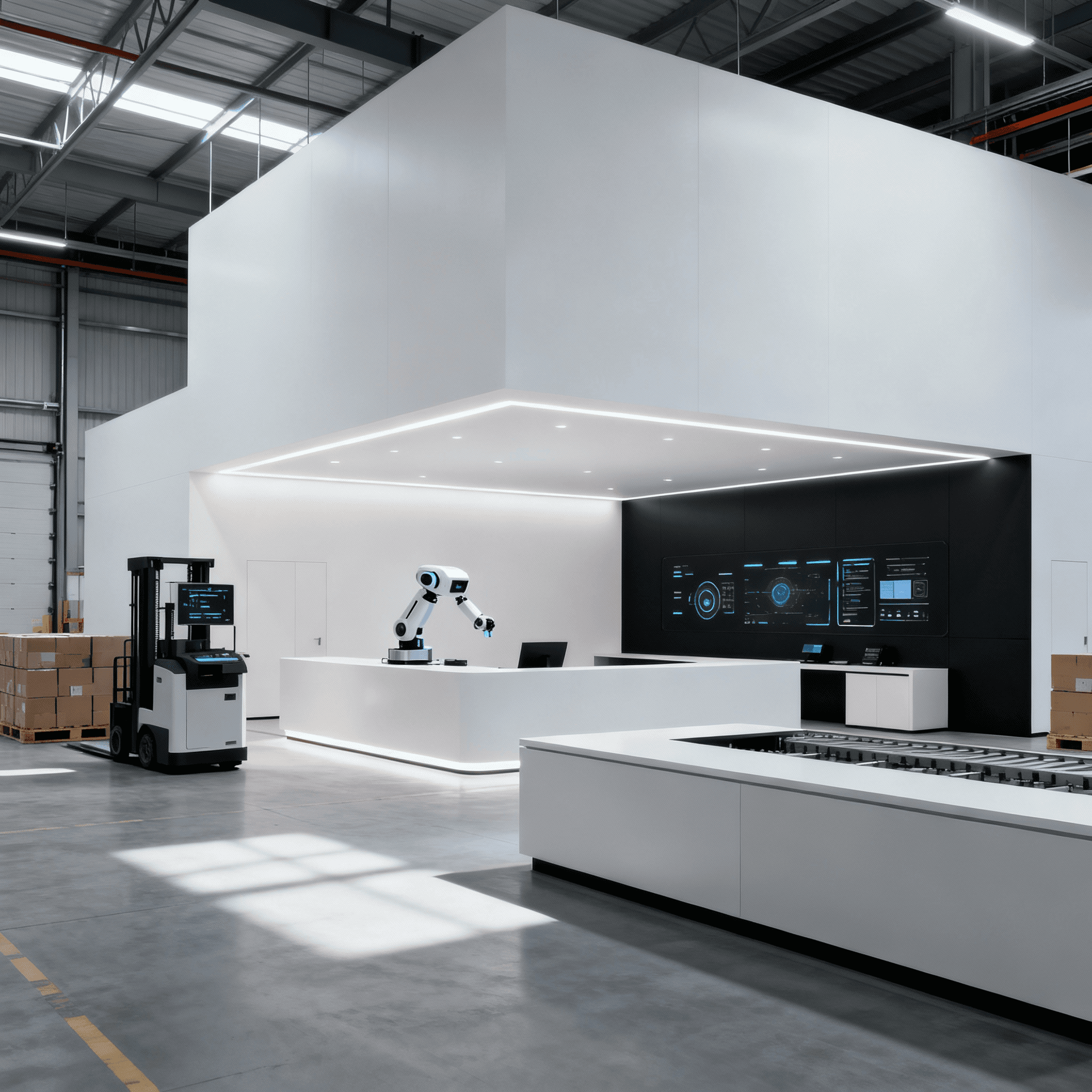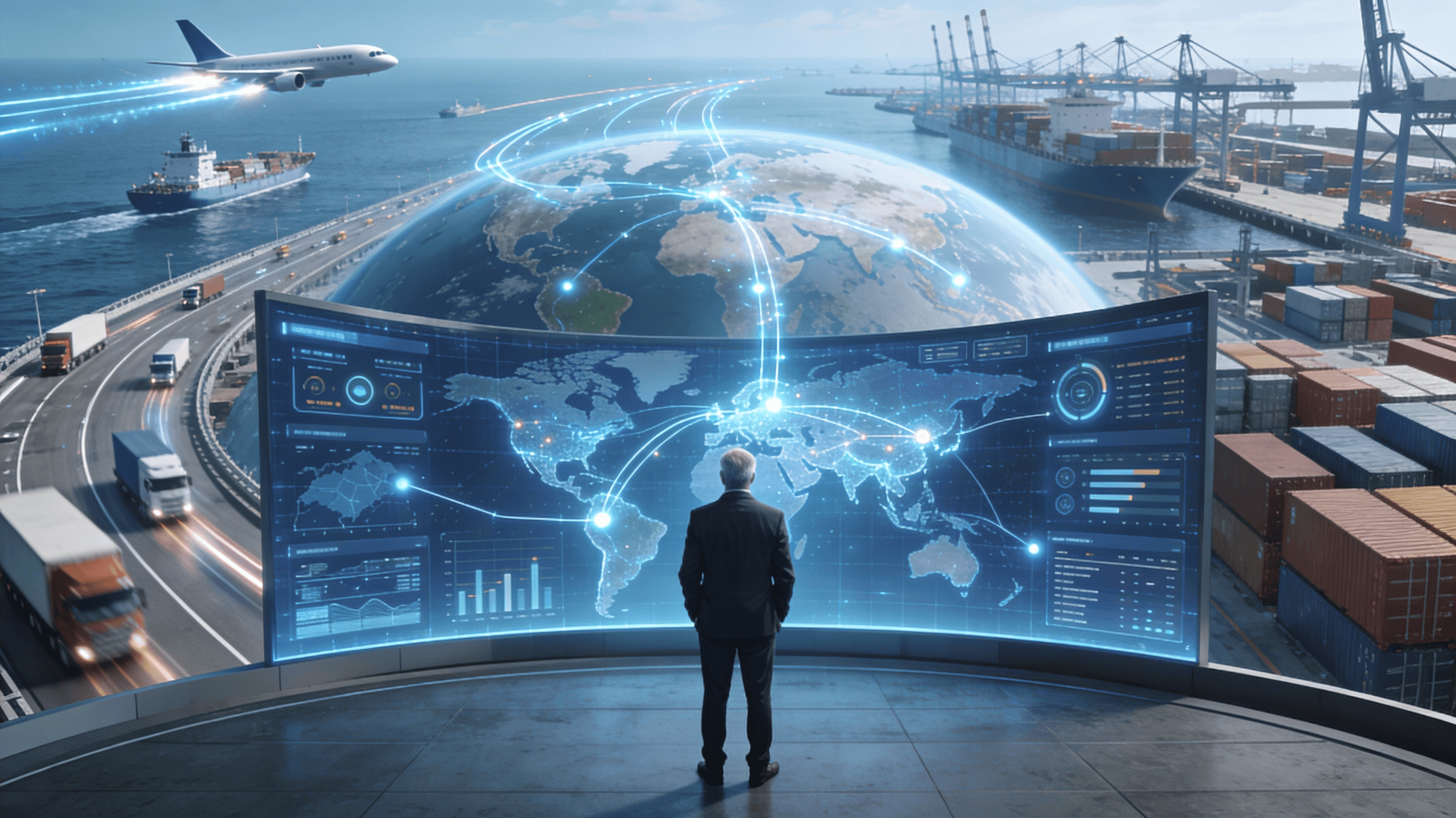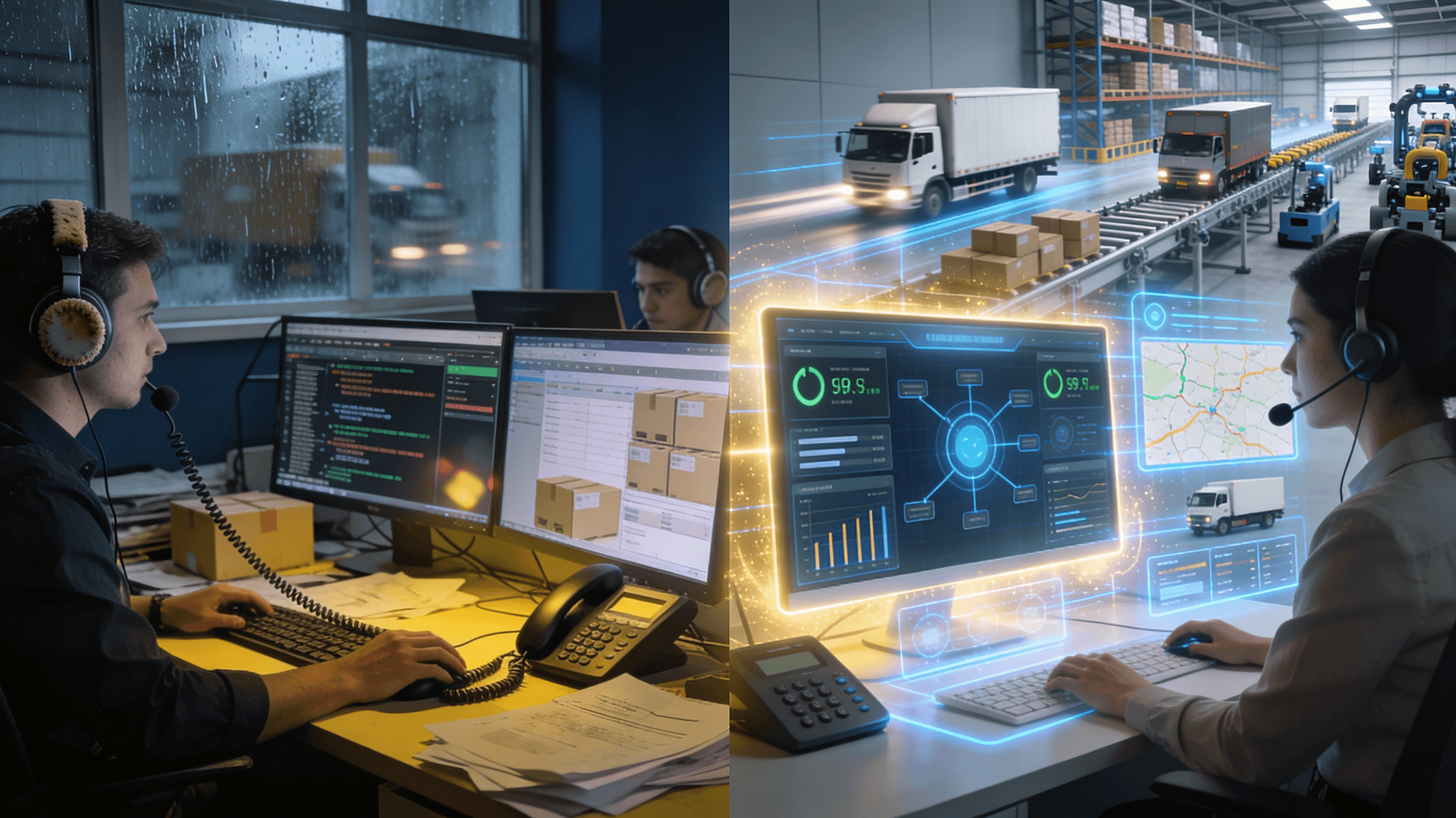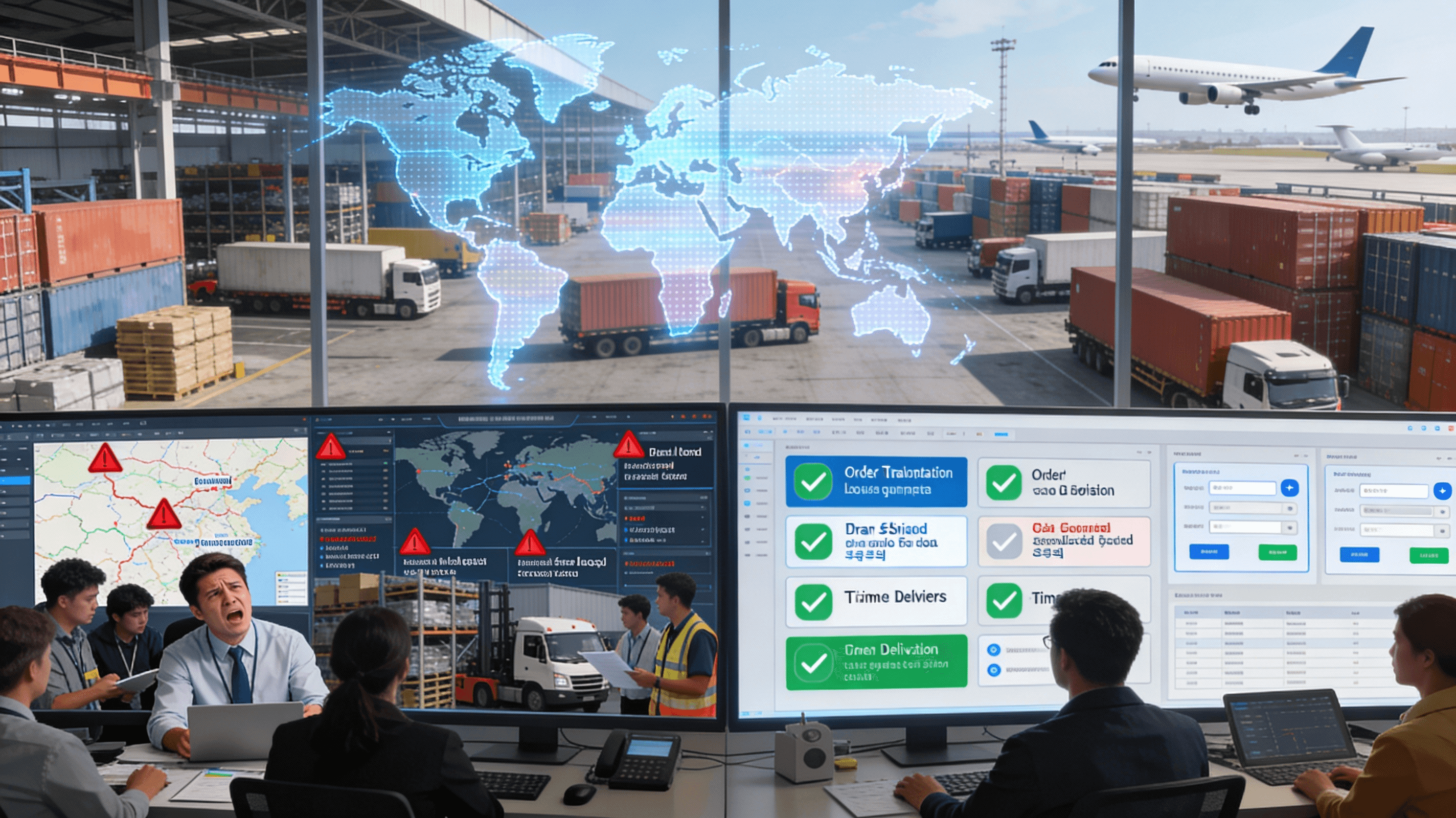What Are the Initial Costs Associated with Implementing an AI Solution in Logistics?
Saturday, 4 Oct 2025
|
As Artificial Intelligence (AI) continues to revolutionize industries, logistics is no exception. With AI-driven solutions improving efficiency, reducing costs, and enhancing customer experiences, many logistics companies are eager to adopt these technologies. However, one of the biggest considerations for logistics CEOs, CXOs, and COOs when it comes to AI implementation is understanding the initial costs associated with these technologies.
In this blog, we will break down the key costs logistics companies should expect when implementing AI, as well as offer practical advice on how to budget for a successful AI transformation.
1. Software and Licensing Costs
Why It Matters:
AI-powered solutions often come with software licenses or subscription fees, depending on the type of technology being adopted. For logistics companies, these costs can vary significantly depending on the complexity of the solution and the scale at which it is implemented.
What to Expect:
- Off-the-shelf AI Solutions: These tend to have lower initial costs but might lack the customization needed for specialized logistics operations. Expect licensing fees or subscription costs, typically on a per-user or per-feature basis.
- Custom AI Solutions: Custom-built AI solutions tailored to your logistics operations will require a higher initial investment for development and ongoing maintenance, but they offer greater flexibility and scalability.
How to Plan:
When budgeting for AI software, it's essential to consider both upfront costs and ongoing expenses such as subscription renewals, software updates, and technical support.
Example:
AI-based route optimization tools or warehouse automation systems can cost between $50,000 and $200,000 annually, depending on the scale of deployment and the number of users.
2. Hardware and Infrastructure Investments
Why It Matters:
AI systems often require significant hardware investments, especially if they involve large-scale data processing or real-time analytics. Logistics companies with a vast number of operations, warehouses, or fleets may need to upgrade their existing infrastructure to support AI models and algorithms.
What to Expect:
- Servers and Cloud Storage: Many AI solutions rely on heavy data storage and processing power. Companies may need to invest in dedicated servers or cloud services like Amazon Web Services (AWS) or Microsoft Azure to store and process AI-generated data.
- Edge Devices and IoT Sensors: In logistics, AI systems often rely on data from IoT sensors and devices, such as GPS trackers, RFID tags, and temperature sensors. These devices can incur additional costs for hardware acquisition, installation, and maintenance.
How to Plan:
Investing in scalable, cloud-based infrastructure is typically more cost-effective than on-premise hardware. Cloud providers offer flexible pricing models, allowing you to adjust your infrastructure needs as your AI implementation grows.
Example:
The initial investment for AI infrastructure in logistics companies could range from $10,000 to $100,000, depending on the complexity of data management and processing requirements.
3. Data Acquisition and Quality Management
Why It Matters:
AI solutions are only as effective as the data they are trained on. Ensuring that your logistics company has high-quality, accurate, and comprehensive data is crucial for the success of any AI solution. The process of gathering, cleaning, and organizing this data can be costly and time-consuming.
What to Expect:
- Data Collection: AI systems require data from multiple sources, including shipment data, inventory levels, delivery statuses, and customer information. Collecting and aggregating this data from existing systems, such as Warehouse Management Systems (WMS) or Transportation Management Systems (TMS), can require additional investments.
- Data Cleansing: AI models rely on clean, accurate data to function properly. Data cleansing can be a labor-intensive process that may require hiring data engineers or data scientists to ensure that your data is suitable for AI training.
How to Plan:
Invest in data governance tools and establish clear protocols for data quality management. If your data is scattered across multiple systems, consider investing in tools that integrate these systems and standardize data formats.
Example:
Data acquisition and cleaning could cost anywhere from $20,000 to $50,000, depending on the volume of data and the resources required to prepare it for AI models.
4. AI Expertise and Talent Acquisition
Why It Matters:
Building and maintaining AI systems requires specialized skills. Logistics companies must either train their current workforce or hire external AI professionals, such as data scientists, AI engineers, and machine learning specialists. This expertise is critical to ensuring the successful deployment and optimization of AI technologies.
What to Expect:
- Hiring AI Experts: AI professionals typically command high salaries, with data scientists earning between $90,000 and $150,000 annually. If your company does not have an in-house AI team, you may need to hire external consultants or partner with AI vendors for support.
- Training Existing Staff: Many companies choose to train their existing staff to understand AI concepts and tools. This can involve attending workshops, certifications, or offering internal training programs.
How to Plan:
Invest in building a strong internal team by hiring talent with expertise in AI and logistics. Alternatively, consider partnering with AI solution providers who offer managed services and implementation support.
Example:
Talent acquisition and training costs can range from $50,000 to $200,000 per year, depending on the scale of your AI initiatives and the need for specialized staff.
5. Implementation and Integration Costs
Why It Matters:
Once your AI solution is selected, integrating it into your existing systems can be a complex and costly process. Logistics companies typically use a variety of legacy systems, such as inventory management, shipping software, and customer relationship management (CRM) tools, which need to be compatible with the new AI technology.
What to Expect:
- System Integration: The integration process often requires custom software development or API work to ensure that AI tools can communicate seamlessly with existing systems.
- Testing and Debugging: Before fully deploying the AI solution, extensive testing is required to identify and fix any bugs or issues that may arise.
How to Plan:
Allocate a budget for testing, troubleshooting, and integration work to ensure that your AI systems operate smoothly. Working with experienced AI solution providers who offer end-to-end support can minimize integration challenges.
Example:
Integration and implementation costs for AI solutions can range from $30,000 to $100,000 depending on the complexity of the systems being integrated.
6. Ongoing Maintenance and Support
Why It Matters:
AI solutions require ongoing monitoring, maintenance, and support to ensure they continue to function effectively. This can include software updates, troubleshooting, performance tuning, and adapting to new business requirements.
What to Expect:
- Vendor Support Contracts: Many AI solution providers offer maintenance contracts that provide ongoing support and software updates.
- Internal Maintenance: Logistics companies may also need to dedicate internal resources to managing the AI system, including monitoring its performance and making necessary adjustments.
How to Plan:
Set aside a budget for long-term support and updates, ensuring that your AI systems remain relevant and effective as your logistics operations evolve.
Example:
Ongoing maintenance and support can cost anywhere from $10,000 to $50,000 annually, depending on the scale of the AI deployment and the level of support required.
Conclusion: Navigating the Costs of AI in Logistics
While the initial costs of implementing AI in logistics can seem daunting, the long-term benefits far outweigh the investment. By understanding the key costs involved—software, hardware, data acquisition, talent, integration, and maintenance—logistics companies can better budget for AI initiatives and make informed decisions about their AI journey.
AI is a transformative technology that has the potential to streamline operations, reduce costs, and improve customer experiences. With the right planning, logistics companies can harness the power of AI while managing the associated costs effectively.
Ready to Start Your AI Journey?
If you're ready to explore how AI can optimize your logistics operations and unlock new efficiencies, book a demo tailored to your needs.
For further insights into AI in logistics, check out our previous blogs on How Predictive Analytics Works for Logistics and What Is a Digital Twin and How Is It Used in Logistics AI.


